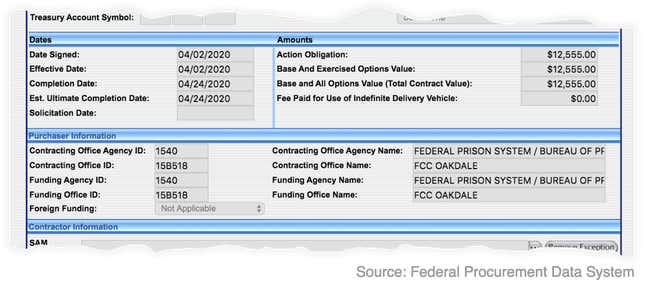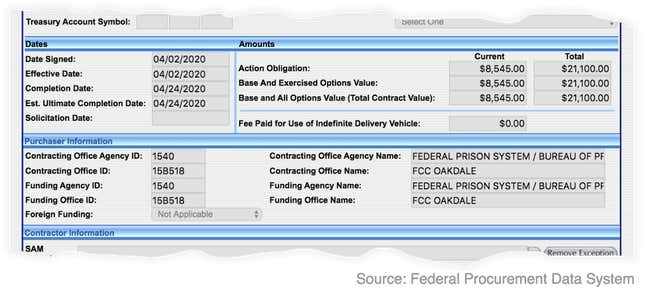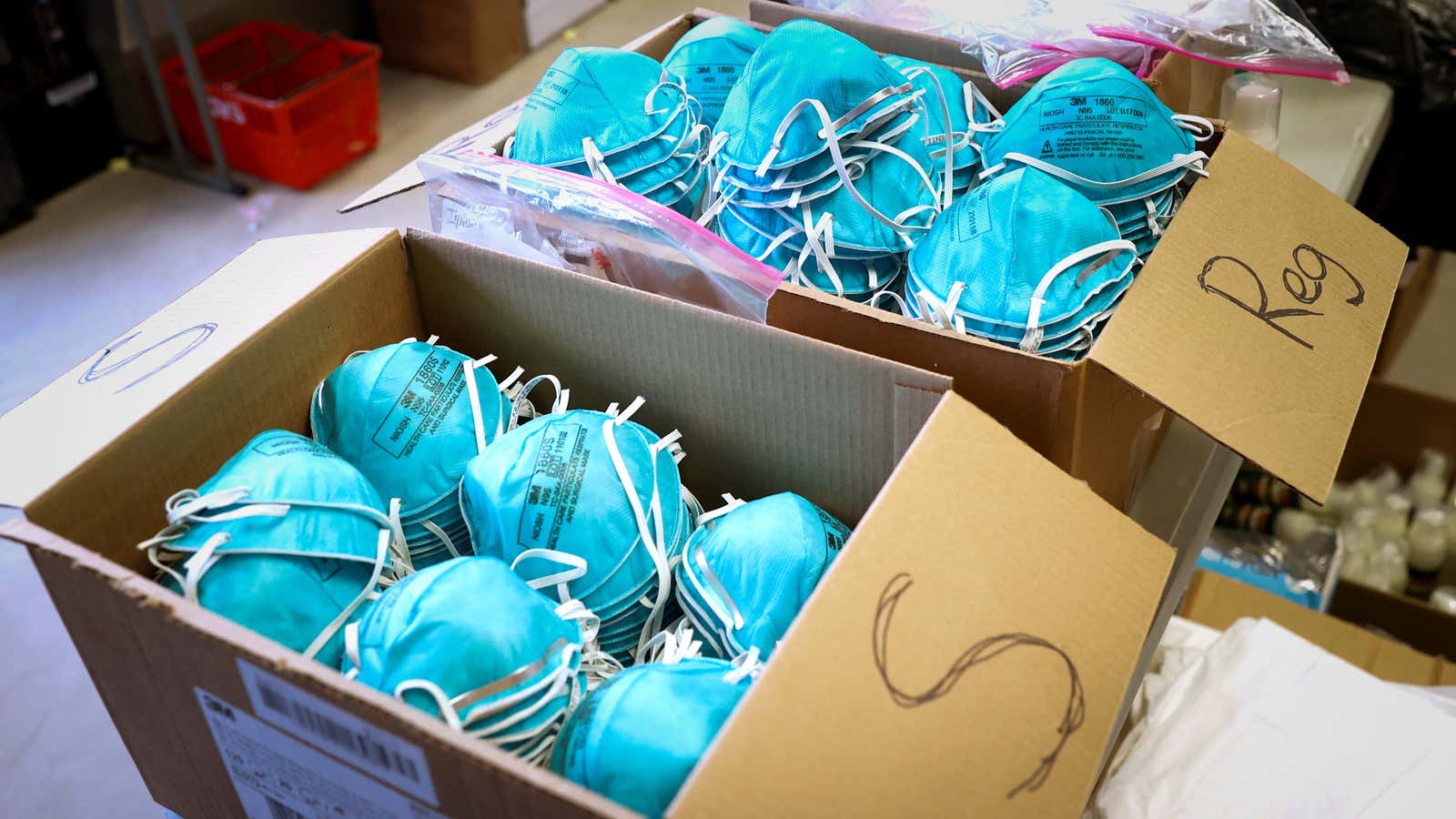A Louisiana correctional institution has been hit hard by the new coronavirus—and by jacked-up prices for face masks. The US Bureau of Prisons (BOP), which runs the facility, will pay nearly 70% more for an order of the personal protective equipment than it agreed to just one day earlier, according to federal purchasing data reviewed by Quartz.
Records show that the BOP signed a contract to buy “coronavirus masks” from Epko Supply of Round Rock, Texas at 3:50pm on Thursday, April 2. The unknown quantity of masks, which were made in China, would cost the agency $12,555.

Less then 24 hours later, the the price being charged jumped by $8,545, to $21,100.

This, says a notation on the contract, reflected an “increase in price between the time that the quote was submitted and when the purchase order was completed. The demand for masks during the pandemic has caused prices from the manufacturer to increase exponentially.”

Neither Epko Supply nor the BOP responded to a request for comment.
Infection rates are far higher in jails and prisons than they are on the outside, and could overwhelm area hospitals if they get out of control. Nationwide, 283 federal inmates and 125 staff have tested positive for Covid-19 as of yesterday.
Craig Holman, a government affairs expert at the left-leaning nonprofit Public Citizen, says the inflated prices indicate that the BOP, much like individual states, “is competing against other federal and state agencies for the same medical supplies.”
“This is a sorry state of affairs for a nation that slashed federal funding for medical supplies in response to tax cuts for the wealthy, failed to recognize and prepare for the health and economic consequences of the pandemic until late in the disaster, and neglects to properly enforce the laws against price gouging,” Holman told Quartz.
Because individual states are competing on the open market against one another, as well as the federal government, for the same scarce supplies, an all-out bidding war has driven prices through the roof for medical equipment necessary to battle the coronavirus pandemic. New York governor Andrew Cuomo said this means ventilators that used to cost $25,000 now cost $45,000. Illinois governor J.B. Pritzker has called on the federal government to coordinate the purchases and eliminate the “wild west” conditions that have emerged.
For his part, US president Donald Trump has rejected any blame laid at his feet.
Scott Amey, general counsel at the nonpartisan watchdog Project on Government Oversight, said the high prices the BOP was forced to pay for face masks is “a good example of what happens when the federal government has inadequate contingency plans and isn’t in a position to buy goods and services at pre-established prices.”
“Stockpiling necessary goods and supplies is one answer, but the other answer is to have pre-negotiated contracts in place that allow buying at normal prices rather than elevated emergency prices,” Amey told Quartz. “The same problem arose after Hurricane Katrina hit the Gulf Coast, and it doesn’t look like we have learned many lessons from that experience.”
The issue has not only affected US prison systems on an institutional level, but it has also personally touched individuals who have played key roles within them.
Martin Horn, the former commissioner of the New York City Department of Correction, told Quartz, “My cousin ordered a mask the other day for $10. When I went online three hours later, it was $20.”
